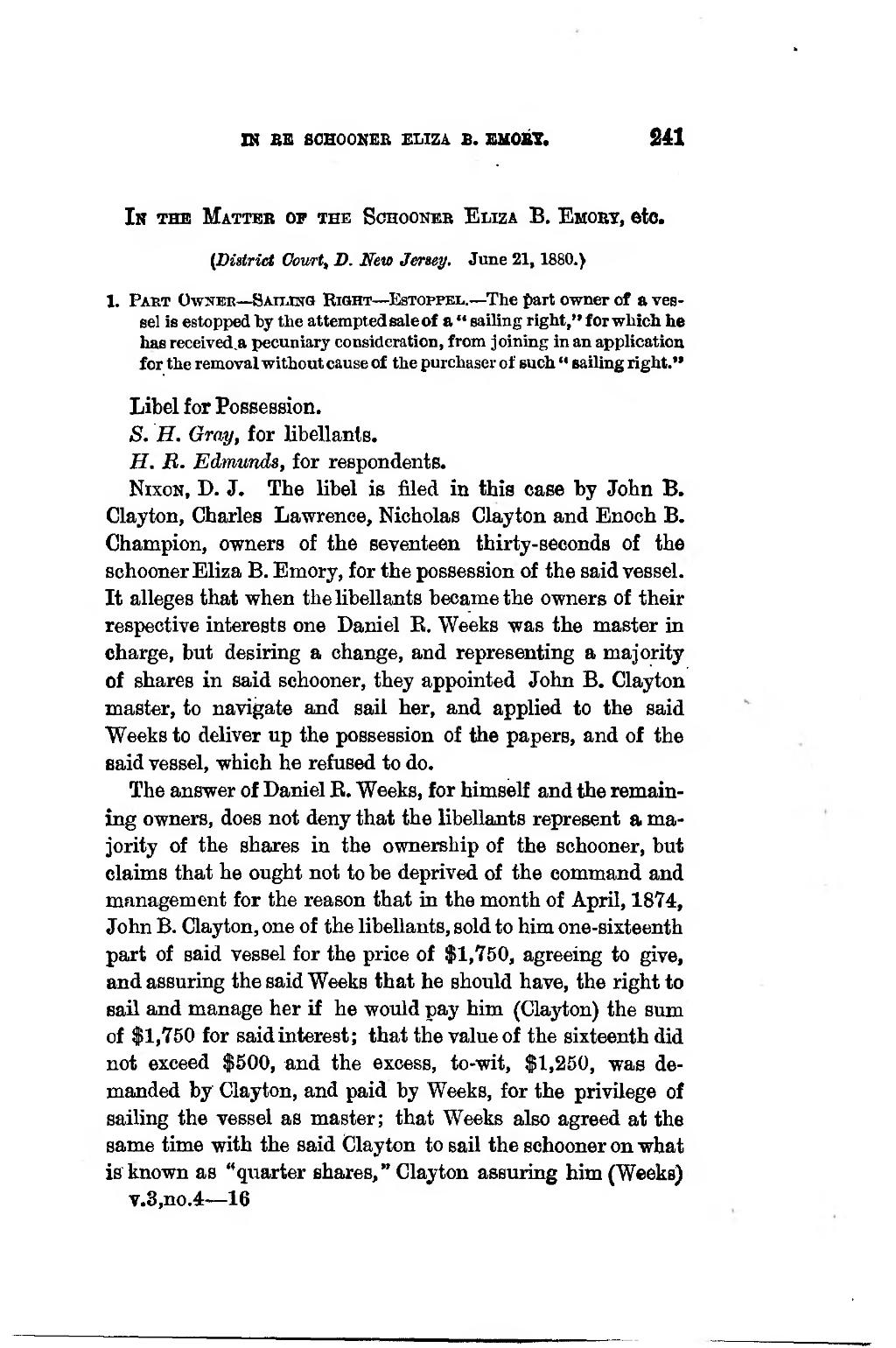IN BB 8CH00MEB ELIZa £. SHOBT. 241 �In THE MaTTBB OF THE SOHOONEB ElIZA B. EmOBY, ôtC. �{District Court, D. New Jersey. June 21, 1880.) �1. Pabt Ownee— SArwsra Right — Estoppel. — The part owner of a ves- sel is estopped by the attemptedsaleof a " sailing right," forwhich he bas received.a pecuniary consideration, from joining in an application for the removalwithout cause of the purchaser of such " sailing right." �Libel for Possession. �S. H. Gray, for libellants. �H. R. Edmunds, for respondents. �Nixon, D. J. The libel is filed in thîa case by John B. Clayton, Charles Lawrence, Nicholas Clayton and Enoch B. Champion, owners of the seventeen thirty-seeonds of the schooner Eliza B. Emory, for the possession of the said vessel. It alleges that when the libellants became the owners of their respective interests one Daniel E. Weeks was the master in charge, but desiring a change, and representing a majority of shares in said schooner, they appointed John B. Clayton master, to navigate and sail her, and applied to the said Weeks to deliver up the possession of the papers, and of the said vessel, whieh he refused to do. �The answer of Daniel E. Weeks, for himself and the remain- ing owners, does not deny that the libellants represent a ma- jority of the shares in the ownership of the schooner, but claims that he ought not to be deprived of the command and management for the reason that in the month of April, 1874, John B. Clayton, one of the libellants, sold to him one-sixteenth part of said vessel for the price of $1,750, agreeing to give, and assuring the said Weeks that he should have, the right to sail and manage her if he would pay him (Clayton) the sum of $1,760 for saidinterest; that the value of the sixteenth did not exeeed $500, and the excess, to-wit, $1,250, was de- manded by Clayton, and paid by Weeks, for the privilege of sailing the vessel as master; that Weeks also agreed at the same time with the said Clayton to sail the schooner on what is known as "qiiarter shares," Clayton assuring him (Weeks) �v.3,no.4— 16 ����
